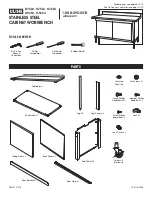
Table 11-1. Information About Storage Subsystem Performance (continued)
Type of Information
Description
Current I/O per
second (IOPS)
The current number of I/Os per second (current means the
number of I/Os per second since the last time that the polling
interval elapsed, causing an update to occur)
Maximum I/O per
second
The highest number of I/Os achieved in the current
I/O-per-second statistic block
The command takes this form:
save storageSubsystem performanceStats file=”
filename
”
where
filename
is the name of the file in which you want to save the performance statistics. You can use
any file name that your operating system can support. The default file type is
.csv
. The performance
information is saved as a comma-delimited file.
Before you use the
save storageSubsystem performanceStats
command, run the
set session
performanceMonitorInterval
command and the
set session performanceMonitorIterations
command to
specify how often statistics are collected.
Changing the RAID Levels
When you create an subsystem, you can define the RAID level for the logical drives in that subsystem.
You can change the RAID level later to improve performance or provide more secure protection for your
data.
RAID 6 is supported in DS4000 and DS5000 storage products only, with controller firmware version
7.1x.xx.xx or higher.
To change the RAID level, use this command:
set subsystem [
subsystemNumber
]
raidLevel=(0 | 1 | 3 | 5 | 6)
where
subsystemNumber
is the number of the subsystem for which you want to change the RAID level.
Changing the Segment Size
When you create a new logical drive, you can define the segment size for that logical drive. In addition,
you can change the segment size later to optimize performance. In a multiuser database or file system
storage environment, set your segment size to minimize the number of disk drives that are needed to
satisfy an I/O request. Use larger values for the segment size. Using a single disk drive for a single
request leaves other disk drives available to simultaneously service other requests. If the logical drive is
in a single-user large I/O environment, performance is maximized when a single I/O request is serviced
with a single data stripe; use smaller values for the segment size. To change the segment size, use this
command:
set logicalDrive ([
logicalDriveName
] | <
wwID
>) segmentSize=
segmentSizeValue
where
segmentSizeValue
is the new segment size that you want to set. Valid segment size values are
8
,
16
,
32
,
64
,
128
,
256
, and
512
. You can identify the logical drive by name or by WWID. (For usage information,
see “Set Logical Drive Attributes” on page 3-217.)
Changing the Cache Parameters
The script command set provides two commands that you can use to change cache parameter settings:
v
set storageSubsystem
v
set logicalDrive
11-6
IBM System Storage DS3000, DS4000, and DS5000: Command Line Interface and Script Commands Programming Guide
Summary of Contents for System Storage DS3000
Page 599: ...Appendix A Examples of information returned by the show commands A 3...
Page 601: ...Appendix A Examples of information returned by the show commands A 5...
Page 603: ...Appendix A Examples of information returned by the show commands A 7...
Page 605: ...Appendix A Examples of information returned by the show commands A 9...
Page 607: ...Appendix A Examples of information returned by the show commands A 11...
Page 609: ...Appendix A Examples of information returned by the show commands A 13...
Page 611: ...Appendix A Examples of information returned by the show commands A 15...
Page 623: ...Appendix A Examples of information returned by the show commands A 27...
Page 625: ...Appendix A Examples of information returned by the show commands A 29...
Page 627: ...Appendix A Examples of information returned by the show commands A 31...
Page 651: ......
Page 652: ...Part Number 00W1466 Printed in USA GA32 0961 05 1P P N 00W1466...
















































